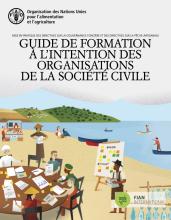Land Library
Bem-vindo à Biblioteca do Land Portal. Explore nossa vasta coleção de recursos de acesso aberto (mais de 74.000), incluindo relatórios, artigos de revistas científicas, trabalhos de pesquisa, publicações revisadas por pares, documentos jurídicos, vídeos e muito mais.
/ library resources
Showing items 1 through 9 of 500.Le présent guide de formation a été élaboré en partenariat avec plusieurs divisions de l’Organisation des Nations Unies pour l’alimentation et l’agriculture (FAO) et FIAN International, et a été adapté du guide d’apprentissage Mise en pratique des Directives volontaires sur les régimes fonciers:
Digital technologies cut off access to land
Despite promises to fix unjust land governance, a new study shows that digital technologies can further land grabbing and inequality.
Labor migration and large-scale land enclosures are increasingly central to the story of agrarian change throughout the Global South.
This paper deepens the economic analysis of the effects of land consolidation – reduction of land fragmentation.
Land tenure, or access and rights to land, is essential to sustain people’s livelihoods. This paper looks at how farm households perceive land tenure (in)security in relation to food (in)security, and how these perceptions evolve throughout different policy periods in Laos.
Since Vietnam shifted to a market-economy in the 1980s, Hanoi has seen rapid urban expansion similar to that of other South East Asian cities - involving megaprojects, luxury developments, rural-to-urban migration, informal housing construction, and escalating speculation.
The forest landscapes of the Greater Mekong Subregion (GMS) are changing dramatically, with a multitude of impacts from local to global levels. These changes invariably have their foundations in forest governance.
Economic globalization promotes the economic development of underdeveloped regions but also influences the ecological environments of these regions, such as natural forest degradation.
This paper explores the political processes that activists engaged in contesting land grabbing have triggered to connect claims across borders and to international institutions, regimes and processes.



